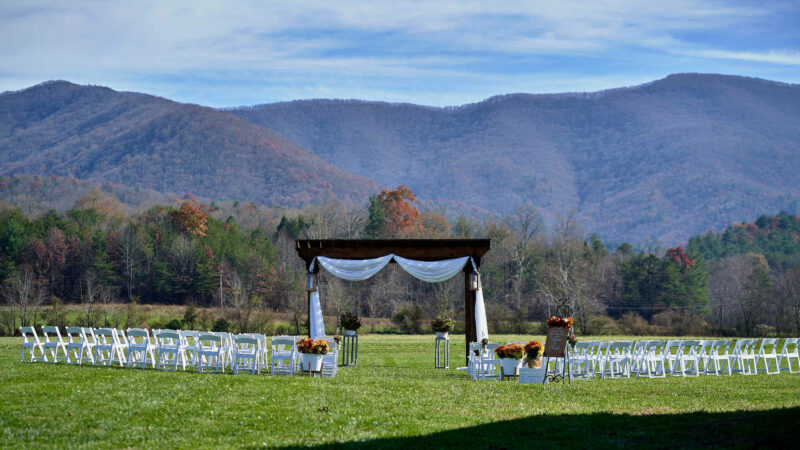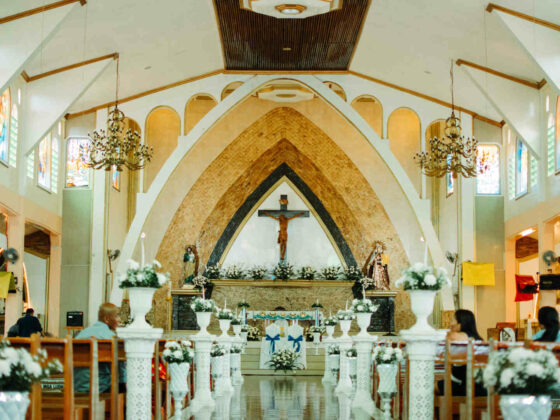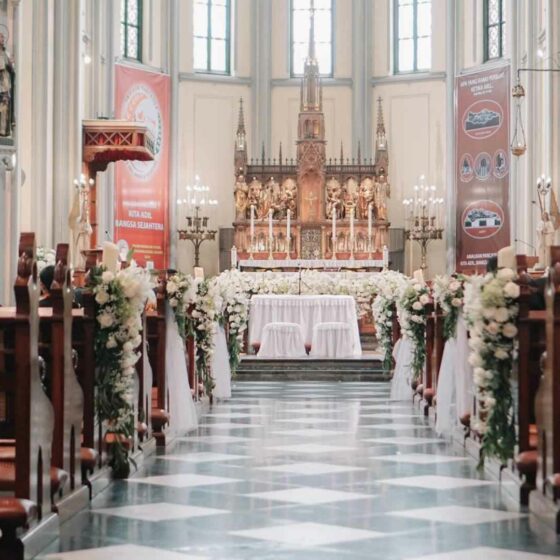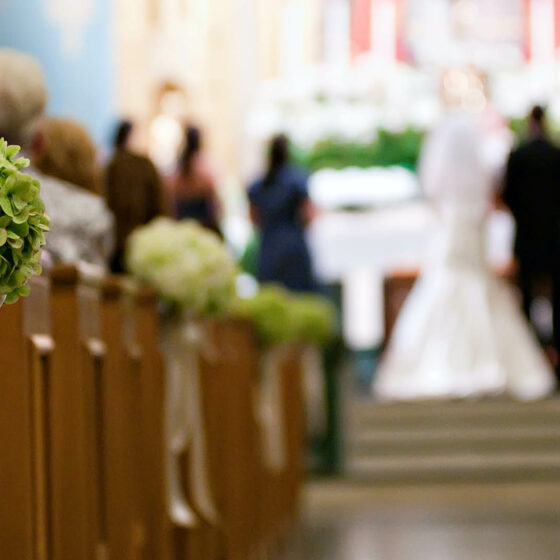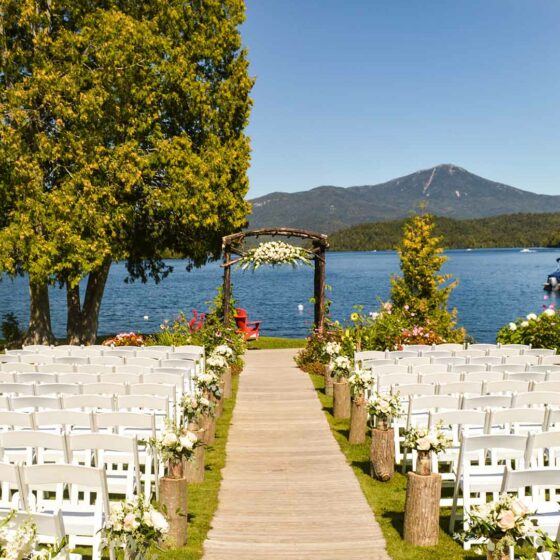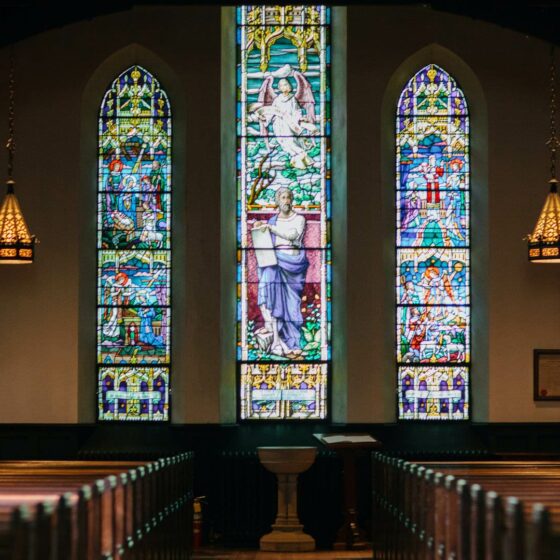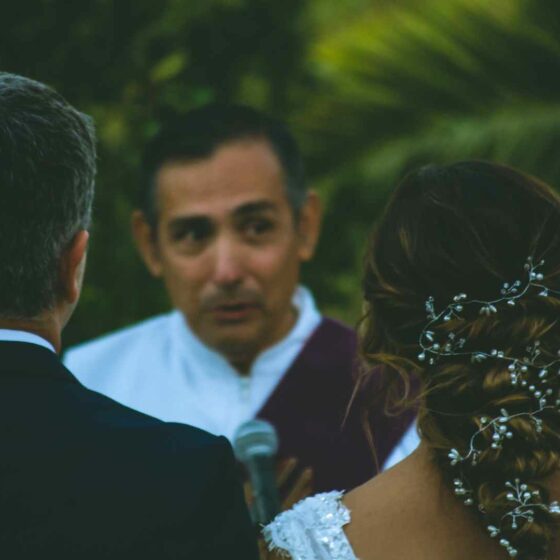When it comes to a wedding ceremony, one of the most important things is timing. Once you decide the timelines of the wedding or when it will start and come to an end, you will find it much easier to organize the ceremony and other events of the day. While it doesn’t take a lot of effort to decide what time will you be having your first dance or how long should the cocktail party go on, deciding the length of the ceremony could prove to be an arduous task. So, how long is the average wedding ceremony?
The average length of the wedding ceremony is about 20-30 minutes. The exception is Hindu wedding, where the length of the ceremony can be 1.5 to 2 hours.
This duration is good enough to cover a few important things or events like readings, words of welcome, exchanging the rings and the final pronouncement. The duration is greatly influenced by the number of events or elements you decide to include in it. I have been to weddings which went on for several hours and that left me and the other guests feeling extremely bored. The length is also determined by the fact whether you are having a secular or a religious ceremony. You must remember that since it’s your wedding, you have a fair amount of control over deciding what the length of the wedding ceremony should be.
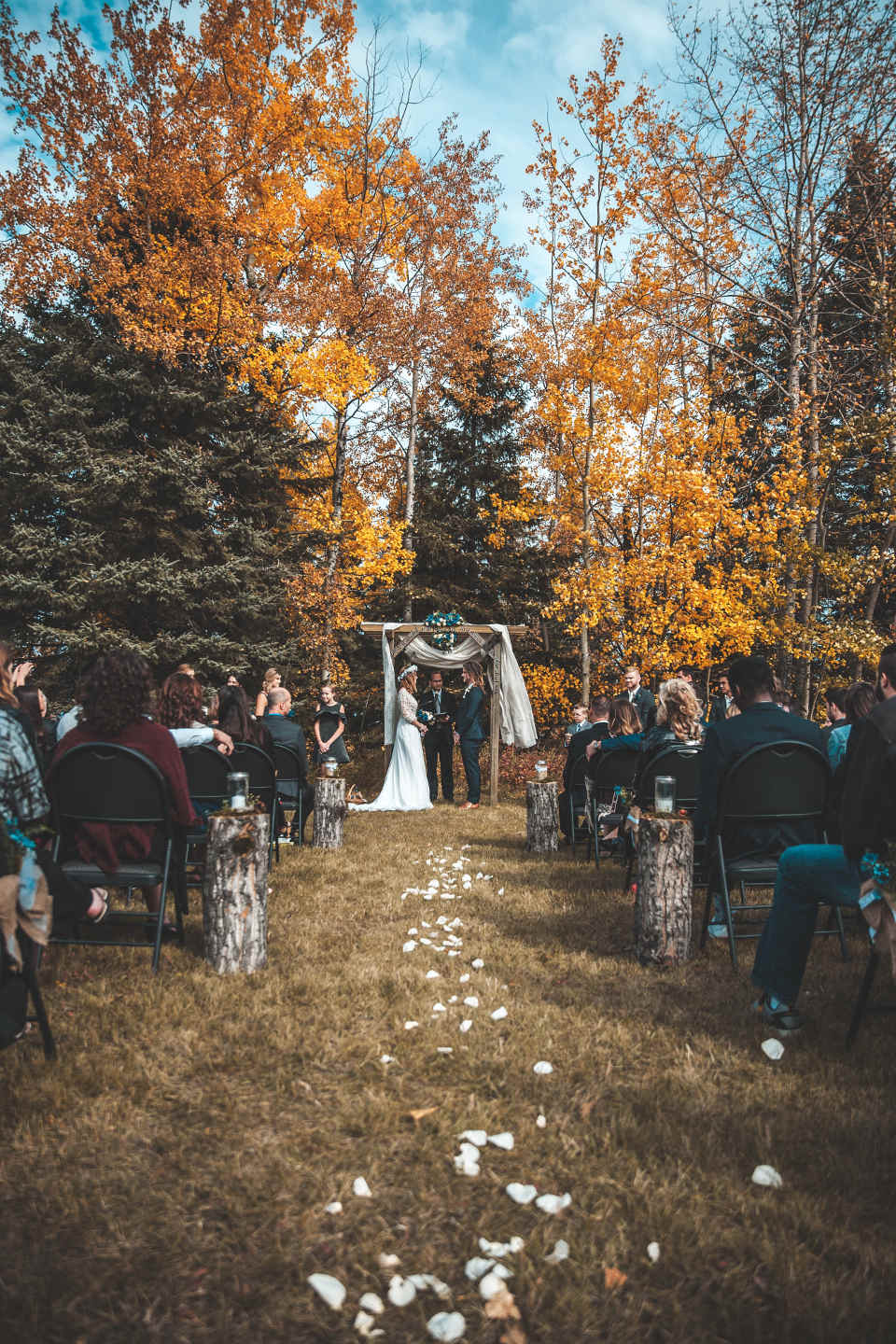
How does a wedding ceremony go step by step?
When it comes to your wedding ceremony, you get to decide the kind of elements it is going to have. However, certain rituals are common to most weddings. Here is a step-by-step breakdown of those rituals which form an integral part of most weddings.
1. The processional
This refers to the time when the couple, along with the wedding party, make an entry into the ceremony space. Towards the beginning of the processional, the groom arrives accompanied by his mother or the officiant. The wedding party follows him. The bride walks down the aisle along with her dad. The music that plays during the processional is mostly decided by the couple.
2. The opening prayer/remarks
Once the bride and the groom reach the altar, the opening remarks are delivered by the officiant. If the ceremony has religious undertones to it, it would be a good idea to get a professional public speaker or somebody who has a way with words for this ceremony. The opening remarks could be anything that you feel like writing and speaking out. You also have the option of getting it written by the officiant.
3. The readings
During the reading session, you have to choose one or two friends or individuals who are very close to you. They will come to the front and read out an excerpt from a book, a poem, a story, a piece of scripture or any other written material that would help in depicting the relationship you share with your partner.
4. The unity ritual
The unity ritual is not something every couple follows but many do. It is symbolic of the union happening between two individuals. A physical embodiment is used to mark this occasion. Some of the most well-known unity rituals are a wishing stone ceremony, a sand ceremony, a ring warming and a unity candle ceremony.
5. The marriage address
In this stage, a marriage address is given by the officiant. A marriage address is largely an explanation of what marriage and the union that it leads to between two individuals is all about. The address also comprises a list of qualities that a couple must have for the marriage to sustain for a lifetime. It ends with the couple getting blessings from the officiant and the other guests.
6. The vow exchange
The guests keenly wait for this particular segment to arrive. The vow exchange becomes all the more interesting if the lines have been written by the couple. The guests get to hear the couple speak and express their love and admiration for each other. If you don’t wish to write your vows, you can just recite the traditional vows.
7. The ring exchange
After exchanging the vows, the couple is supposed to exchange the rings. During this stage, the officiant requests the ring bearer to bring the wedding rings forward. The couple is then requested to place a ring on each other’s ring finger. Once they do this, the officiant will instruct them to repeat a few lines.
8. The marriage declaration
This is the final step in the wedding ceremony. “I now pronounce you married” is what the officiant tells the couple. His statement serves as the final declaration of the marriage. After this, the bride and the groom kiss each other and everyone cheers for them.
How long is a wedding ceremony in a church?
An average wedding ceremony in a church lasts for around 30 minutes. However, it could be longer or shorter in duration depending on how the couple and their families plan it. The number of elements you decide to incorporate in your wedding play a crucial role in determining the length of the wedding ceremony.
While deciding the length of your wedding ceremony, you must keep one important thing in your mind. Apart from you, your partner and your families, the wedding ceremony will be attended by a large number of guests. If it drags for way too long, they might end up getting bored and you wouldn’t want that to happen. (Recommended article: “Can Wedding Guests Be Required to Be Vaccinated Against COVID-19?“)
How long is a Jewish wedding ceremony?
Having attended many Jewish wedding ceremonies myself, I can vouch for the fact that most of them follow a similar pattern and last for 20-30 minutes. Despite being a religious wedding ceremony, you do have a say in how long your Jewish wedding ceremony should be. You get a few options at your disposal. For instance, you can decide whether the priest will perform an additional reading from scripture or not. The option of adding or not including an extra piece of music also rests with you.
How long is an Indian wedding ceremony?
The duration of an Indian wedding depends on the type of Indian wedding it is. For instance, North Indian weddings are very different from South Indian weddings. On average, however, an Indian wedding lasts for almost 3 days. The wedding ceremony takes place on the final day, that is, the third day. The duration of the main wedding ceremony is mostly between 1.5-2 hours. I attended an Indian wedding two years back and I can confirm that while they are long and stretched across a couple of days, they are a lot of fun and very memorable.
Related Questions
What can you do instead of a wedding ceremony?
In the last several years, a large number of couples have commemorated their unison without opting for a traditional wedding ceremony. While some couples find traditional wedding ceremonies boring, some ditch them to save up on all the money that goes into organizing them. There are many alternatives to a conventional wedding ceremony. One popular alternative is opting for a courthouse ceremony. I have had a courthouse ceremony and I know for a fact that they are inexpensive and do not consume a lot of time either. You can also choose to host a small gathering for your close friends and relatives after the ceremony.
How can I get married without a wedding?
You can get married without a wedding by opting for self solemnization. Also referred to as a self-uniting marriage, this is the process through which a couple gets married without a third-party officiant being present. In this process, the couple gets to legally solemnize their marriage. The marriage that takes place will get legal recognition by the state. In the United States, there are a few states like Colorado, Illinois, Pennsylvania, Kansas, District of Columbia, Wisconsin, Nevada and Maine where this is allowed. If you are planning to have a self-solemnizing marriage, it would be advisable to check with the authorities in your area to find whether it is legally recognized there.
What do you include in a wedding ceremony?
You could include a lot of wonderful things to personalize your wedding ceremony. You could personally design a program or a wedding card that would have a list of all the events or ceremonies at your wedding. Design the card in a way that reflects your sensibilities and style. I have sat down with many friends who were about to get married at that point and helped them come up with ideas that could truly help their wedding ceremony stand out. Another thing that a lot of people do and is quite popular are the cocktail parties that are organized right before the ceremony. It is important to make the guests feel special on the wedding day. To do this, you can put together a bunch of thoughtful gifts for them. The gifts should be such that they remind them of this special day even when they see it several years later.
What is a non-traditional wedding ceremony?
A non-traditional wedding ceremony is one in which traditional rituals are not followed. It is often driven by the ideas that you have and is largely non-orthodox. In the recent past, I have been to many weddings where the bride and groom broke many conventional rules to make their wedding more fun. Of course, all of this was done while making sure that nobody’s sentiments were hurt. If you want to do something different but are not sure how to do it, then you can choose to follow the traditional methods or ceremonies but with a small twist. For instance, instead of the traditional opening prayer or remark, you could opt to read a humorous statement that makes the guests laugh and lightens up the proceedings.
Header photo © Hitesh Patel / Unsplash
